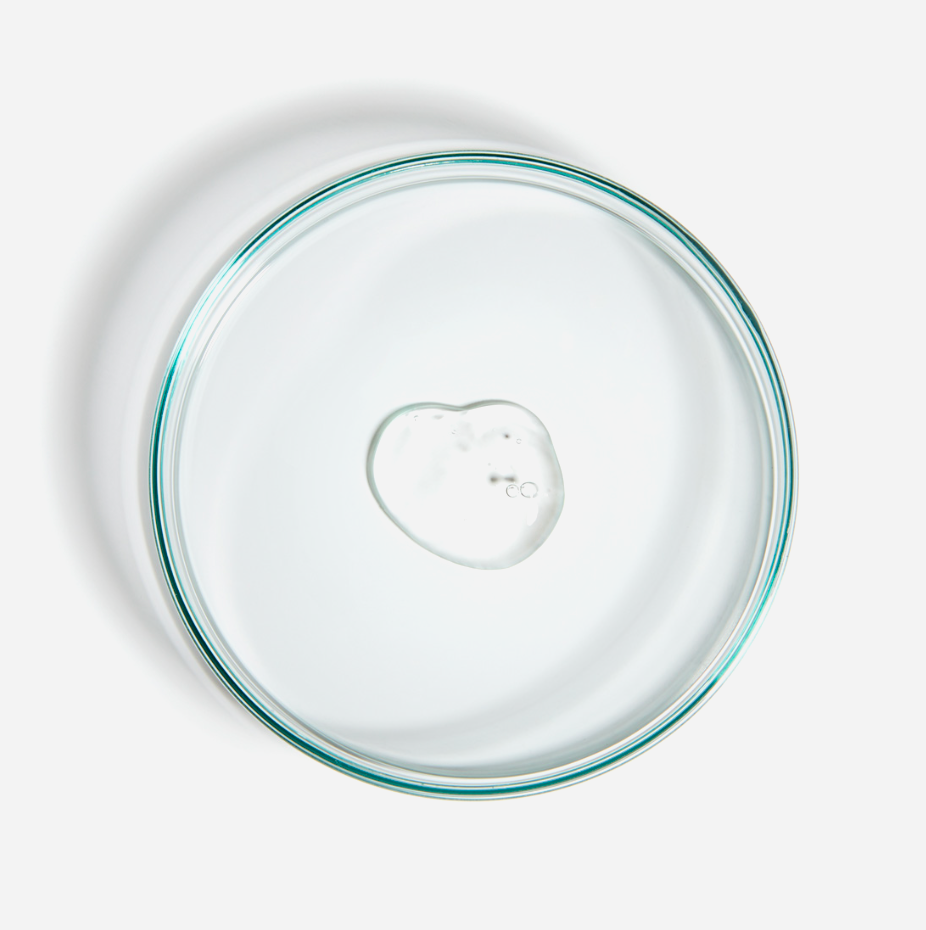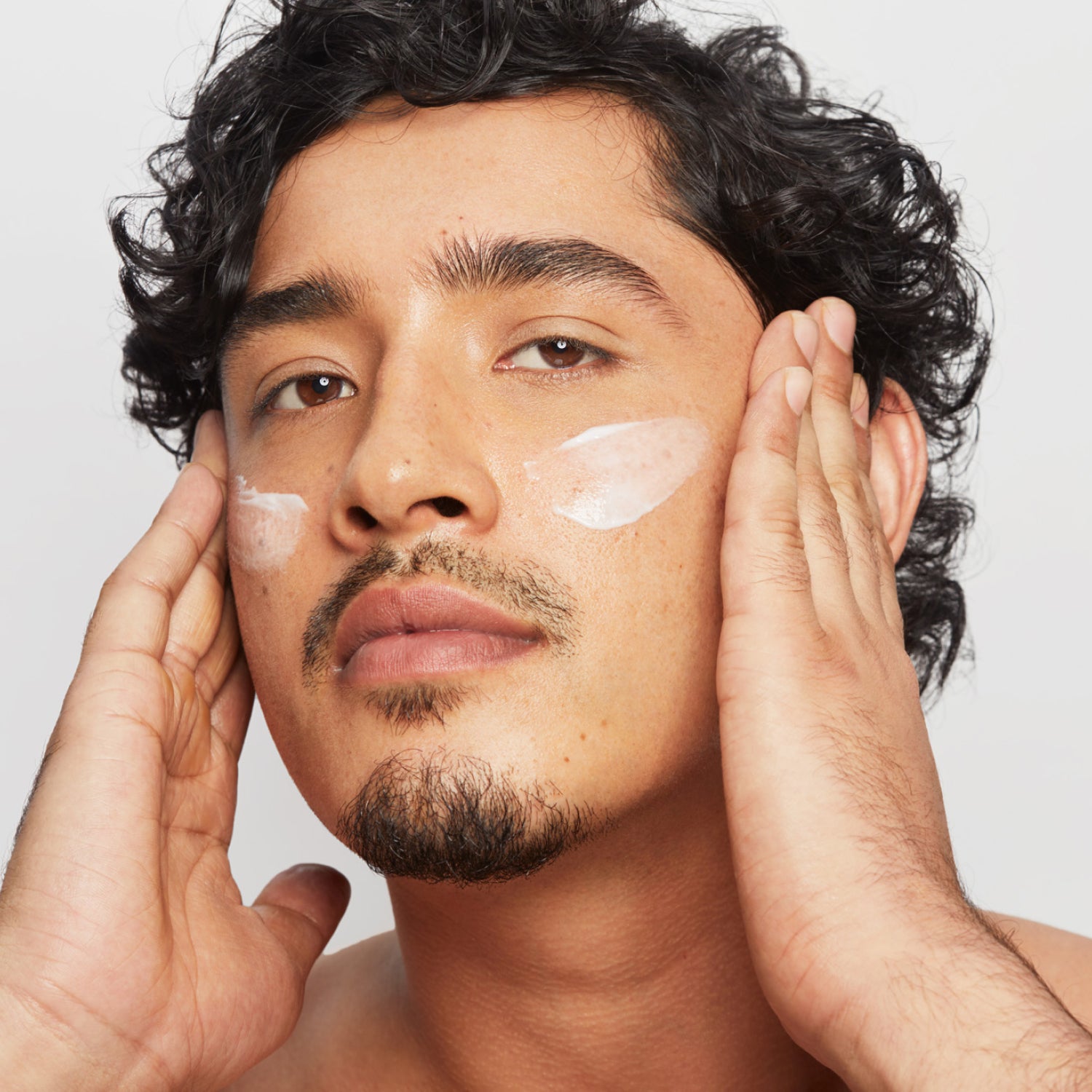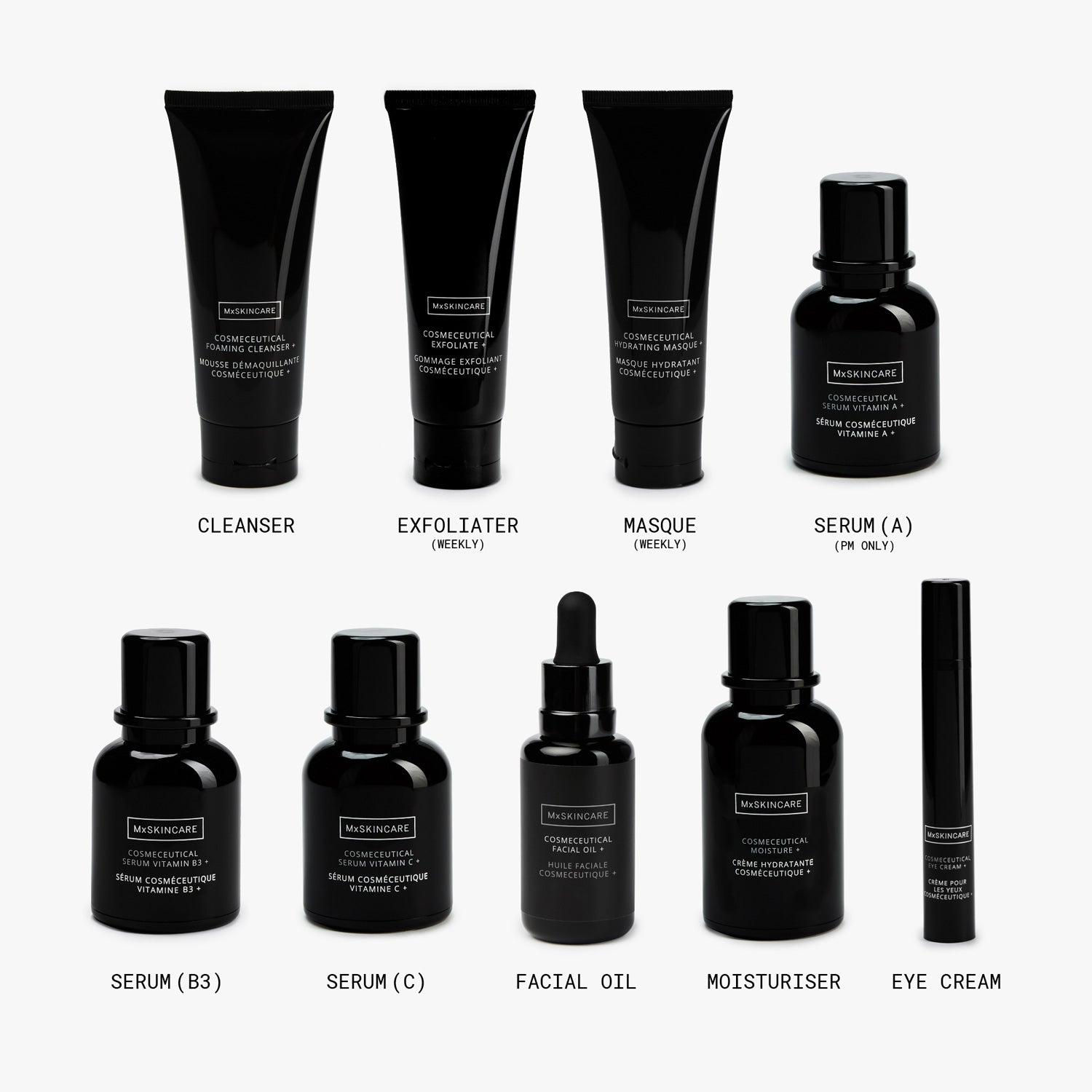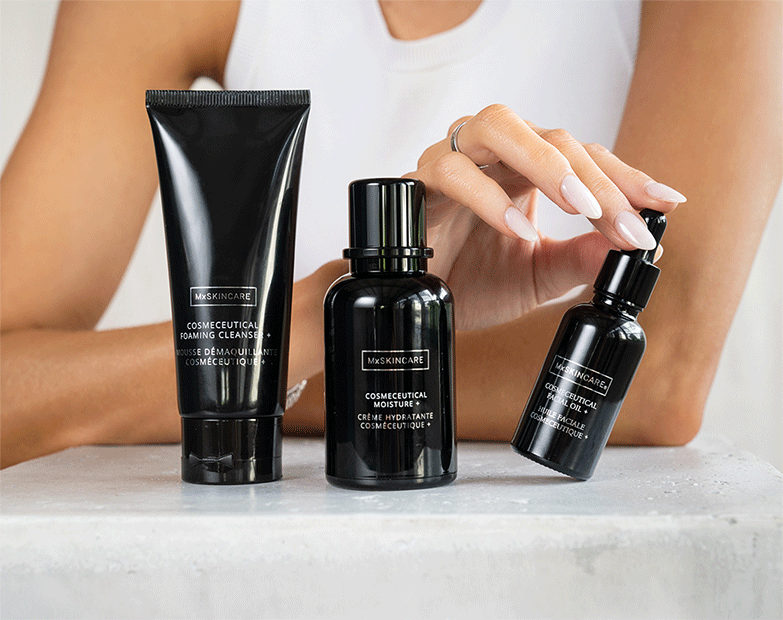"Great Skincare requires a little education and a lot of quality ingredients"
Let’s talk straight about skincare, and bust some current skincare myths.

Myth #1: The more active ingredients, the better. Not true.
In essence, active ingredients are what make a skincare product effective. So, many people assume that using a product that boasts of a lot of different active ingredients can magically transform their skin.
More is better, right? Not true - with skincare, adding more does not equal better.
Active ingredients have a percentage range where they are most effective at achieving a desired result. For some ingredients, the percentage range is much lower than others, and anything beyond that range can either be ineffective or worse, it can cause irritation to the skin. And some active ingredients just don’t work when mixed with other active ingredients.
And they work best when properly balanced with other ingredients in the product.
Another big misconception is that active ingredients, especially anti-ageing ones, are tolerated in the same way by all skin types. Unfortunately, this is not the case.
While Normal to Oily skin tends to have a higher active ingredients threshold tolerance, Dry, Acneic and Sensitive Skin may not tolerate some actives at all or can tolerate a lower concentration.
The reason behind this is the protective skin barrier could be compromised, and that will impair the regular repair and renewal cycle of the skin.
Also, let's not forget the importance of good formulations. Utilising gentle skincare formulations with correct and synergistic combinations of the right active ingredients in the optimal percentages, that encourage skin barrier support, can make the difference from an average skin conditioning product to an outstanding skincare treatment.
This perfectly engineered balance is essential to penetrate skin on a much deeper level - and this is the foundation of the Mx Skincare truth.
Which is why you shouldn’t judge a product based solely on the percentage of active ingredients nor the number of actives in the one product.

Myth #2. Natural ingredients are best. Not always true.
The idea that all natural ingredients are superior to synthetic ones is a misleading. In terms of effectiveness, natural and non-natural skincare are equals. Your body can’t decipher what is a ‘natural’ product - instead, it all comes down to molecules.
The skin has a protective barrier that protects it from dangerous foreign elements and free radicals, and when you apply a skincare product on your body, only tiny molecules can be absorbed into your skin.
It's the molecular structure of skincare products that makes them effective or not. Also, your body absorbs and uses different molecules in different ways, and different skin situations call for different skincare products.
There are many natural ingredients that have proven benefits, but there are also some natural ingredients that are simply used as marketing tools to sell products. So just because something is natural doesn’t necessarily mean it’s effective for your skin.
On the other hand, there are situations that call for chemicals and active ingredients to effectively treat specific skin issues. These skin treatments, whilst not 'natural', are not harmful and are much more effective than 'natural' ones. But of course there are also some chemicals in products that can be potentially harmful to your skin and you should be wary of them, like Parabens and Sulphates/Sulfates, (Mx Skincare contains none of these nasty ingredients). Using natural skin care products is more of a lifestyle choice than anything else, it does not mean you are choosing better products.
Instead, look for tried and tested active ingredients which supply your skin with the molecules it needs.

Myth #3. The harsher the exfoliator, the better. Not true.
Nothing jumpstarts skin like a deep clean that removes dirt, debris and dead skin cells, and brightens the complexion. And that, in a nutshell, is why exfoliation is king.
But scrubbing and exfoliating too hard or too often will cause damage to your skin, it can strip your skin of essential moisture and natural oils, and makes your skin more susceptible to infections, clogged pores and free radicals.
The greatest culprit of harsh exfoliating are 'mechanical exfoliants' - they come in the form of a scrub, typically with granules, and remove dead skin cells via friction.
For example, nut shells like almond and walnut, are far too rough for the skin on the face, but meant more for elbows, knees and toes. Due to their rough nature, they can actually cause microscopic tears in the skin that can lead to broken capillaries and an impaired acid mantle which can lead to more problems.
Mecahnical exfoliators can sometimes be too aggressive, a little too abrasive and irritating for sensitive, acneic, dry or inflamed skin, so as a general rule you would avoid mechanical exfoliation if you fall into this category of skin type or skin concern.
Chemical exfoliation on the other hand tends to be gentler on skin, as it uses chemicals such as alpha hydroxy acids (AHAs) to loosen and dissolve the rough outer layer. Always keep things on gentle side when treating your skin and more importantly, look for a cleanser that hydrates while it cleans.

Myth #4. Only use skincare products specific to your age group. Not True.
A lot of products on the market claim to be for a specific age group (especially for those women over 50 who now according to some brands, are supposed to have 'mature' skin), but age is NOT a skin type.
While our skin does change throughout our lives, it has very little to do with our numeric age. Bigger factors are at play and have more to do with our genetics, lifestyle, skin type, and any skin conditions.
What’s true is that someone who is 50 can have the same skin concerns and skin type as someone in their 30s. Oily skin and clogged pores don’t just automatically stop when you turn 50 and dry, dull-looking skin can be a problem even in your 20s.
Regardless of your age, fighting visible signs of ageing should start as early as possible. Whether you're 20 or 50, the basic principles of skincare are the same - it's crucial to repair the skin barrier from the damage that occurs from environmental factors such as too much sun, pollution, poor diet and stress, and reduce the resulting inflammation.
The ingredients it takes to do that are the same for everyone, and you can’t start too soon.

Myth #5. Don’t use oil if you have oily skin. Not true.
Super shiny skin is not something anyone aspires to, particularly if skin is prone to excess oil and breakouts, but what if we told you that a little oil can do all skin good?
Whilst applying oil to oily skin might seem like all kinds of wrong, recent studies have shown that the right facial oil - one that penetrates skin without clogging pores - can help regulate oil production to help stem breakouts.
Our skin is designed to have an oily layer called the ‘acid mantle’; this is our first line of skin defense. Using harsh products can strip this back, so then the skin sends signals to the sebaceous glands to produce more oil. Using oils can have the opposite effect; it can decrease oil production as the skin recognizes it is hydrated.
Yes, oily skin needs to be hydrated! And if it isn't hydrated properly, this could encourage the skin to produce even more sebum to compensate, making the vicious circle of oily skin even worse.
So contrary to popular belief, oils are perfectly compatible with oily skin, as long as you make the right choices.
A well-formulated, lightweight, skin-friendly facial oil laced with antioxidants such as vitamins A and C, and CoEnzyme Q10 will not only hydrate, but also improve skin’s elasticity and firmness, and protect skin from free radical damage caused by UV rays and other environmental aggressors. That's why a little oil can do all skin good - it just needs to be the right kind of oil, the good oil.




